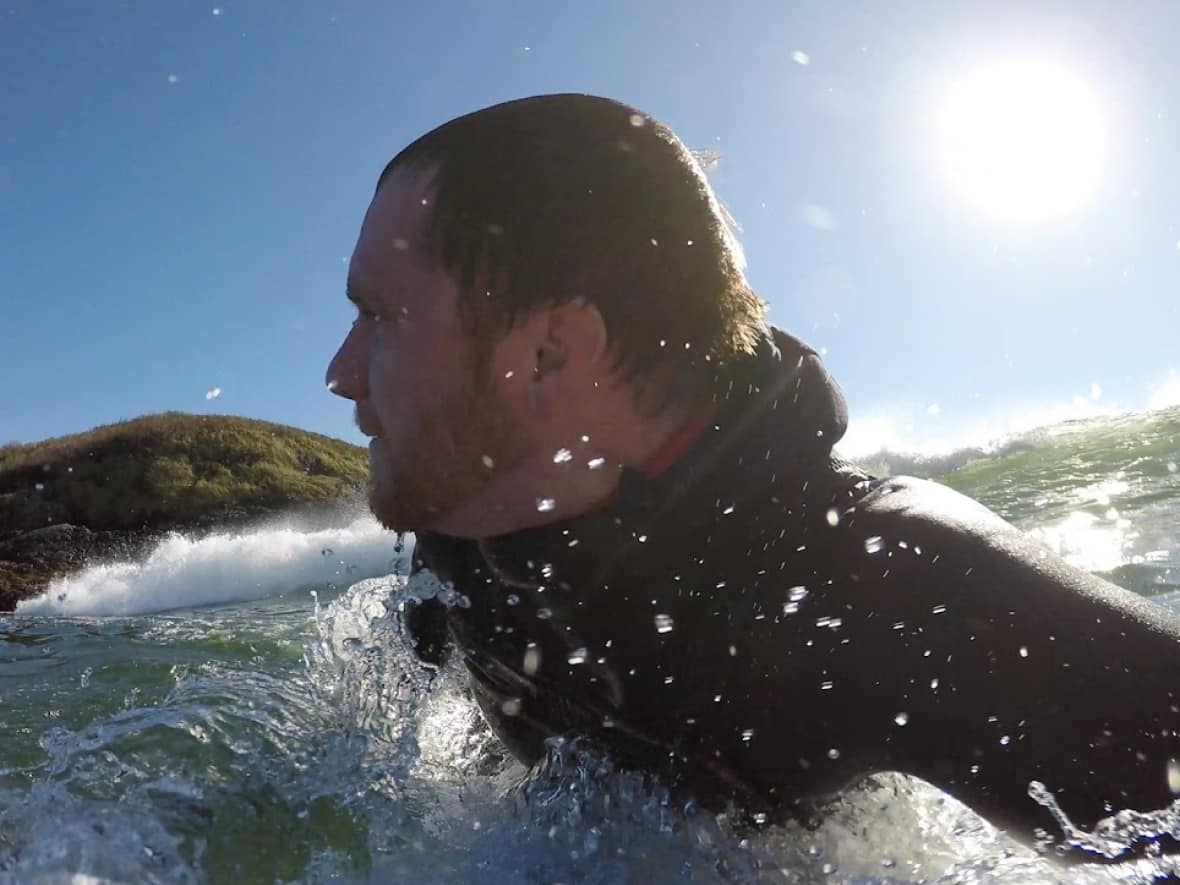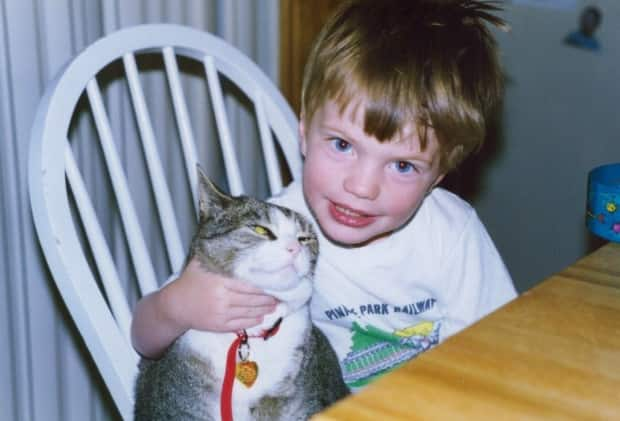Dad of B.C. man who died after leaving psychiatric hospital asks why care team didn't involve family

WARNING: This story contains distressing details.
Aaron Sanio's friends and family say he was always open and honest about his struggles with mental illness — and about his commitment to getting better.
"He was fully aware of how ill he was, and he shared that with me. He used to say, 'Dad, I would rather you know everything,'" the 30-year-old B.C. man's father, Michael Sanio, told CBC News.
But, he continued, "Aaron did not want to die, I can tell you that."
Despite that expressed desire to stay alive, Aaron died by suicide on June 15, 2021, just days after being released from involuntary care in the HOpe Centre at Lions Gate Hospital in North Vancouver. His father says he was not informed Aaron was being discharged.
Family and friends of the Squamish entrepreneur are now speaking out about what they see as a failure of a policy meant to ensure relatives are included whenever possible if their loved ones are hospitalized during a mental health crisis.
Under Vancouver Coastal Health (VCH)'s family involvement policy, care providers are expected to consider all relevant information offered by family members and, when appropriate, include family in the recovery plan.
Dad Michael Sanio called the hospital eight times during Aaron's five-day stay, trying to speak with someone on the care team about his son's history with mental illness and alcohol abuse.
"I said … I want to talk to a professional so I can share what we know because I think it's material, and frankly, we think that he needs to stay there for a much longer period of time," Sanio said.
But he says no one directly involved in Aaron's care returned his call — an allegation supported by phone records shared with CBC.
Meanwhile, Aaron's business partner and best friend of 10 years, John Warnock, said he also tried calling the HOpe Centre for information, but was told only immediate family could speak with the care team.

Similar concerns about family involvement were raised during a 2016 coroner's inquest into the suicide deaths of three patients shortly after their release from the psychiatric ward at Abbotsford Hospital.
In fact, the coroner's jury in that case recommended the VCH policy as a potential model for other health authorities.
That information is cold comfort to Aaron's family.
"Frankly, if the policy were acted on, I could have benefited from knowing from the professionals what I could do to be helpful, and I am sure that had they known what we knew, they would never have released him," Sanio said.
A VCH spokesperson said the health authority was unable to comment on the specifics of Aaron's case for privacy reasons.
"This is a heartbreaking loss for the family and loved ones and we share our deepest condolences," the spokesperson wrote in an email.
"With any complex discharge, extensive planning and consultation takes place with all care providers. This may include family representatives, support agencies and community partner organizations."
'He wanted to be happy'
Those who knew Aaron describe him as brilliant, creative and deeply devoted to his friends. He founded his first business as a teenager, a skateboard ramp design company, and at the time of his death was CEO of a transportation technology company he'd founded with Warnock.
But he was hounded by suspected bipolar disorder for most of his life.
"He told me on our first date … 'I'm not really well, but I'm taking medication,'" said Louise-Hélène L'Écuyer-Poirier, Aaron's former partner and the mother of his three-year-old daughter, Gaby.
Nevertheless, she fell in love.
"Aaron was so amazing and caring and generous. He wanted to be happy, and the illness made him unhappy," she said.
WATCH | Louise-Hélène L'Écuyer-Poirier gives a tribute to Aaron Sanio at his funeral
In the two years before his death, Aaron had two stays at the Sunshine Coast Health Centre in Powell River to address his problem drinking, with some success, according to his father. Text messages shared with CBC show regular communication between Michael Sanio and staff there.
Loved ones noticed a sharp decline in Aaron's well-being in his final few months, following the death of a beloved dog, the failure of one of his businesses and the disintegration of some friendships.
Aaron survived a suicide attempt early in 2021. After a second attempt in June, RCMP determined he was a danger to himself and took him to the HOpe Centre for involuntary treatment.
'Something could have been done, maybe'
Myriam Benoit-Allaire, Aaron's girlfriend at the time of his death, picked him up from the hospital when he was discharged on June 9, 2021. She said he was talking about moving to Santa Cruz, Calif.
But she had to leave B.C. soon after to spend time with her family and get some distance from a relationship that was hurting her own mental health.
"He started to drink again, and I was in Montreal," Benoit-Allaire said. "I was just exhausted and I didn't really know what to do anymore to help him."
She was still in Montreal when Aaron died.
L'Écuyer-Poirier said she was in shock when she learned about his death.
"At first I did not believe it. I was just saying no, no, no, no, no, no," she said. "And then I just thought about my daughter, that she didn't have a dad anymore."
L'Écuyer-Poirier said she can't understand why the family wasn't involved during Aaron's final hospital stay, or informed about his release.
"I don't know how it works," she said, "but something could have been done, maybe, to prevent it."
If you or someone you know is struggling, here's where to get help:
If you're worried someone you know may be at risk of suicide, you should talk to them about it, says the Canadian Association for Suicide Prevention. Here are some warning signs:
Suicidal thoughts.
Substance abuse.
Purposelessness.
Anxiety.
Feeling trapped.
Hopelessness and helplessness.
Withdrawal.
Anger.
Recklessness.


